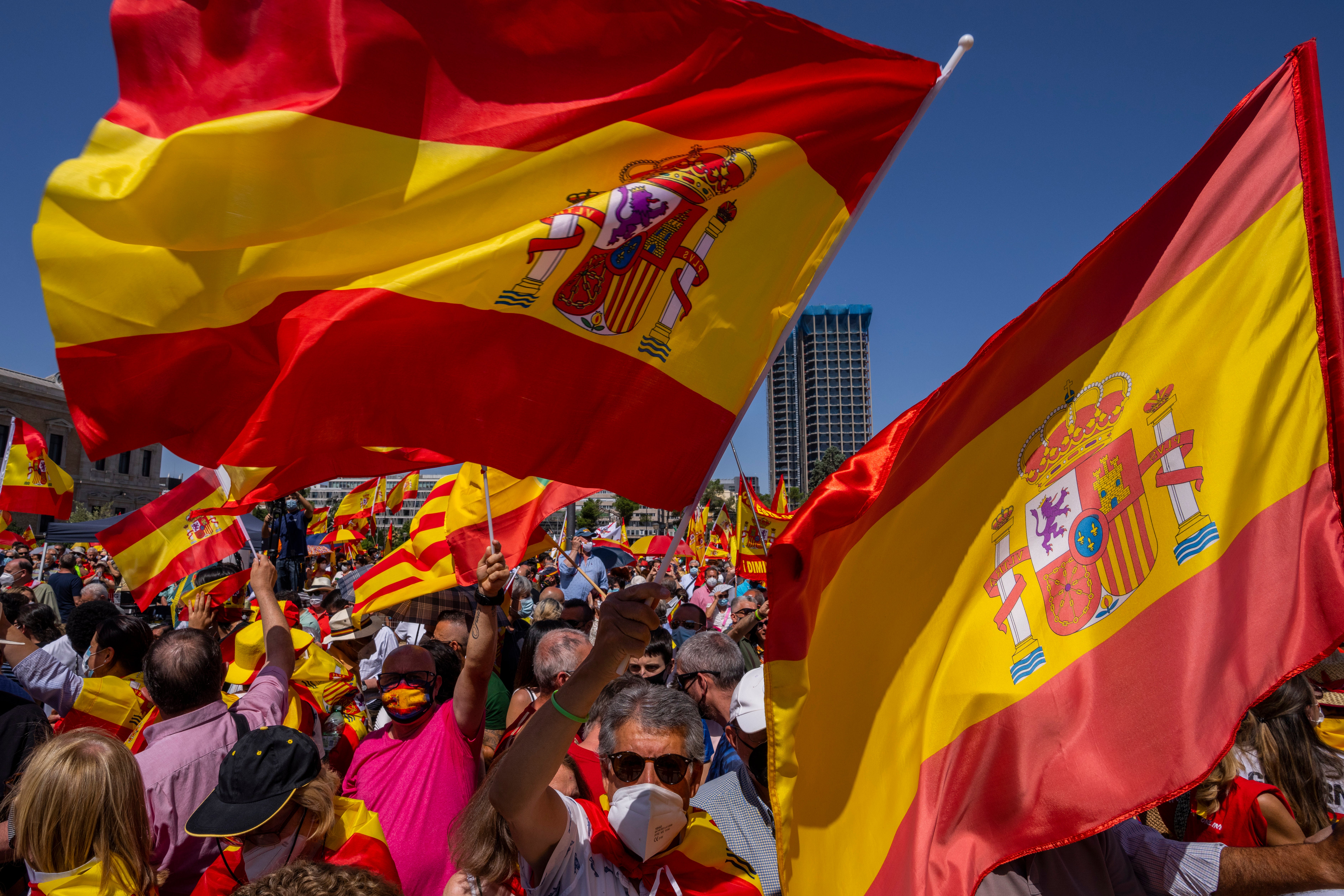Spain’s right wing rejects any pardons for Catalan leaders
Potential pardons are seen within prime minister’s Socialist camp as a risky political gamble

Thousands of people in Madrid have protested the Spanish government’s plan to issue pardons to a dozen separatist leaders who were convicted for their roles in a failed push for the Catalonia region’s independence, the biggest challenge to the country’s unity in recent history.
The demonstration on Sunday was organised by a civil society group to promote a united Spain and took place at a central square that has become a symbol for far-right political rallies.
Leaders of the centre to far-right political opposition to Socialist prime minister Pedro Sanchez joined the protest at Colon Square, which boasts one of Spain’s largest national flags.
Sanchez hasn’t announced pardons for the 12 political and civil society leaders who in October 2017 pushed ahead with a banned referendum on Catalonia breaking away from Spain and then declared the northeastern region’s independence based on the vote.
But the prime minister has defended taking such a move as a way to bring Catalans and Spaniards closer together after the divisive prosecutions that put most of the Catalan leaders behind bars.
Sanchez is also facing criticism in his own Socialist camp, where the potential pardons are seen as a risky political gamble. While more than 60 per cent of Spaniards oppose the pardons and only 29.5 per cent back them, according to a recent poll for El Mundo newspaper, surveys conducted in Catalonia show support of 60-70 per cent.
Detractors say the separatists have not shown any remorse for their defiance of the Spanish constitution and that Sanchez is making concessions to them in exchange for support from Catalan lawmakers in the national parliament.
Tensions over secession grew in earnest a decade ago amid the economic hardship of the Great Recession and discontent over Spain’s opposition to more autonomy for the Catalan-speaking region of 7.5 million people.
The issue has also dominated the political debate at the national level and contributed to the rise of the nationalist Vox party, which has become the third-largest political force in the Spanish Congress.
Subscribe to Independent Premium to bookmark this article
Want to bookmark your favourite articles and stories to read or reference later? Start your Independent Premium subscription today.
